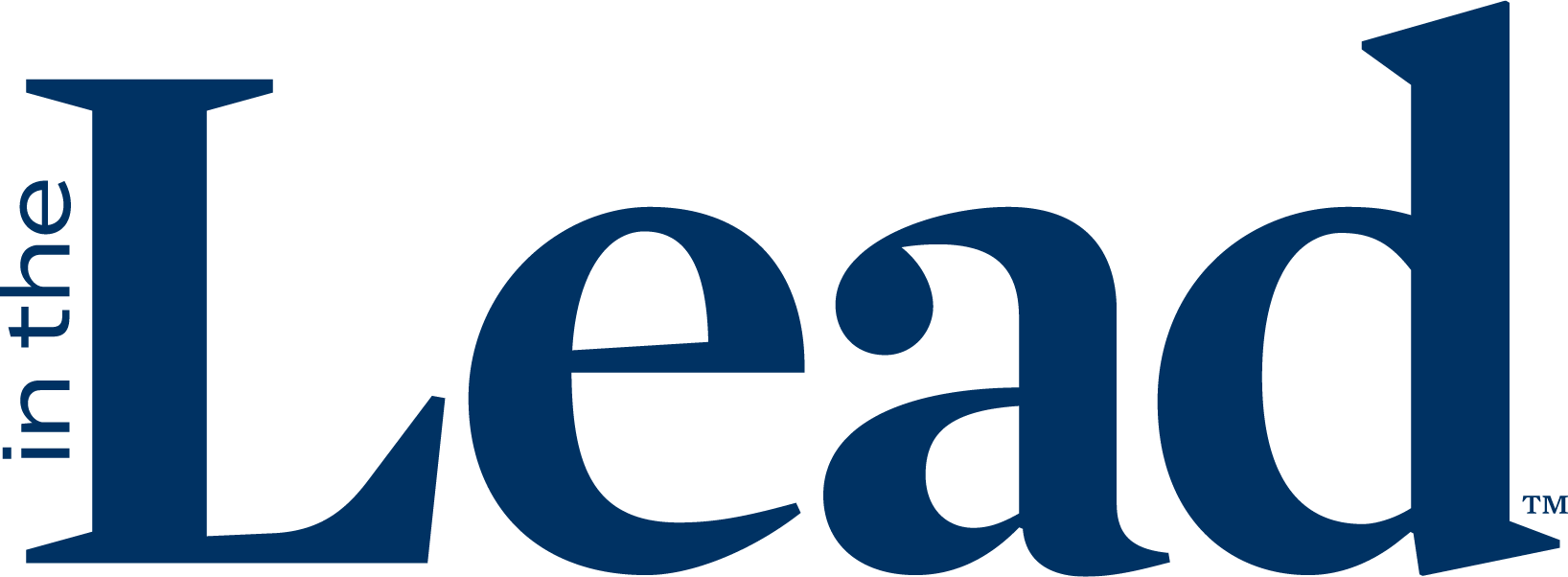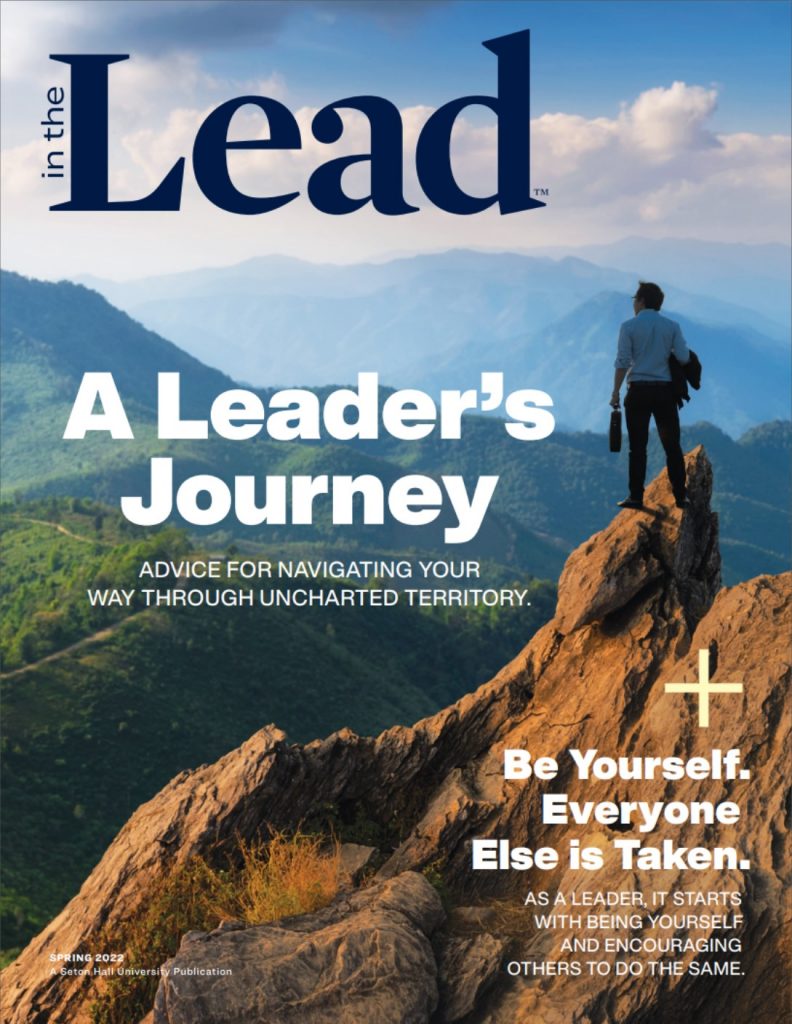 How Seton Hall’s leadership lessons play out in Amazon’s corporate culture.
How Seton Hall’s leadership lessons play out in Amazon’s corporate culture.
Hometown: Marlboro, New Jersey
Career: Senior Program Manager at Amazon, the world’s largest e-commerce company
“If you’re part of a customer-obsessed organization, that means that other people are going to be customer-obsessed about you. Emphasizing the value of strong interpersonal relationships in business is absolutely crucial.”
IN THE LEAD Why were you attracted to working at Amazon?
MICHAEL CAPPELUTTI In my opinion, Amazon is the most fascinating supply chain in the world. Its customer-obsessed culture relentlessly solves a logistics challenge that has been present since the beginning of e-commerce: How can we get as many packages to customers as quickly as possible? This is an effort I was intrigued to be a part of.
ITL What skills did you learn in the Buccino leadership program that help you in your current role at Amazon?
MC The Buccino Center’s focus on experiential learning prepared me extremely well for Amazon’s ‘learn by doing’ philosophy. Perhaps more importantly, though, the leadership program grooms its leaders to be forward-looking and future-oriented — both particularly relevant characteristics to demonstrate at a company like Amazon.
ITL Can you give an example of how the leadership program prepared you to be, as you called it, forward-looking and future-oriented?
MC Absolutely. I think the best example I can give was Professor [Jack] Shannon’s Disruptive Strategy course. His course really inspired me to challenge the status quo. After just a few lectures, I quickly found that I had a passion for futurism that would later lead to an interest in scaling e-commerce through efficient supply chains/logistics. Before I took the course, I probably had a relatively nonchalant attitude when it came to the concept of faster delivery. But after taking Professor Shannon’s course, I realized that the companies that could overcome those types of futuristic barriers were the ones that were ultimately going to achieve sustained success.
ITL When did you make the decision to apply to Amazon?
MC That’s an interesting story because I completed my degree in three years, but I didn’t know I was going to graduate in three years until the fall semester of my last year. My friends and I were always talking about the FAANG companies [Facebook, Apple, Amazon, Netflix and Google] and what their businesses would mean for the future of society. As a young professional, that was something I was eager to be a part of.
ITL To finish your degree in three years takes a special mindset. I’ve heard you talk about the importance of a “Day 1 mentality” at Amazon. What does that mean?
MC At Amazon, “every day is Day 1” in that there is always something new to learn, there is always freshness in our ambition and there is always excitement about what new solution we could find on any given day.
This mindset helps us to break monotony that some people might experience at work. A non-complacent, “never settle for less”-type attitude can go a long way in helping someone find value in their role.
At Seton Hall, I wrote a philosophy paper on the idea of ‘hyper specialization’ and how that concept can lower someone’s morale. When every day is Day 1, there is no ‘super zoomed in’ situation of complacency. While we organically might find ourselves zoomed in on the work we do, we put mechanisms in place to remain forward-looking and focused on the big picture.
ITL The pandemic has radically impacted global logistics and our supply chains. What are the most important leadership skills you need to excel in this environment?
MC Customer obsession. This is one of Amazon’ leadership principles, and it’s an extremely valuable characteristic for anyone in any business.
Customers can be so much more than just someone purchasing something. They are your downstream and upstream counterparts. They are janitors, safety personnel, associates, senior leaders. They can be, literally, anyone. Realizing that the work you do impacts everyone — even in an organization with over 1.5 million employees like Amazon — helps me to find value in the work that I do and strive to always put my best foot forward.
During the pandemic, it’s unfathomable to think about how many people were relying on Amazon. We had quarantines and travel mandates. Some people were afraid to even go outside. People needed us, and because of that, I found significant meaning in what I was doing.
ITL One of the fundamental pillars of the Buccino leadership program is feedback. In fact, providing feedback might be the most impactful thing we do. Was there any feedback that you received in the program that was meaningful to you?
MC I got some really rich feedback during my time with the program. I remember specifically some feedback I got in my Peer 360 during my freshmen year. There was a comment, in particular, that read something to the effect that “Mike is a super smart guy and he always has good things to say, but my advice would be to take a step back and listen sometimes, too.”
That really stuck with me, and I’m proud to say that in every peer piece of feedback from that point on, I got feedback that was more like “Mike was always willing to listen, and then add his contributions after.”
Everyone wants their ideas to be heard. Everyone wants to have their contributions valued.
That one change was important to my success in the program, or at least in gaining the respect of my peers. This is something that has paid dividends in my career.
ITL Knowing what you know now, are there any skills that we should be giving students in the Buccino leadership program that we didn’t when you were a student?
MC If you’re part of a customer-obsessed organization, that means that other people are going to be customer-obsessed about you. Emphasizing the value of strong interpersonal relationships in business is absolutely crucial. While there is always desire to “be the best,” that doesn’t necessarily have to mean competition. It means, “how can I best serve my peers and customers today?” I believe that is the epitome of servant leadership, which I believe is at the heart of the Buccino leadership program.
I think when students come into college, especially business students, there’s a preconceived notion that they have to be the best, adopt a Wall Street mentality and box-out their peers so that all of the opportunities get funneled to them.
The downside to that is [that] in a super alpha, ultra-competitive business school setting, there are some great ideas that end up hidden because some people might have a quieter, less aggressive personality type and therefore never get their ideas out.
When we’re all tackling big problems and challenging the status quo, everyone has the same goal in mind. To tackle this big ask, we have to get as creative as possible and leverage as many people to generate as many great ideas as possible. Almost organically, it creates a team setting versus an environment of “every person for themselves.”
Instead of being in competition with your peers, compete with the status quo. If you can channel that healthy competitive spirit, you can make a world of change. If you have 25, or 80, or 150 people doing that — or like Amazon where you have 1.5 million workers doing that — there’s no ceiling.





